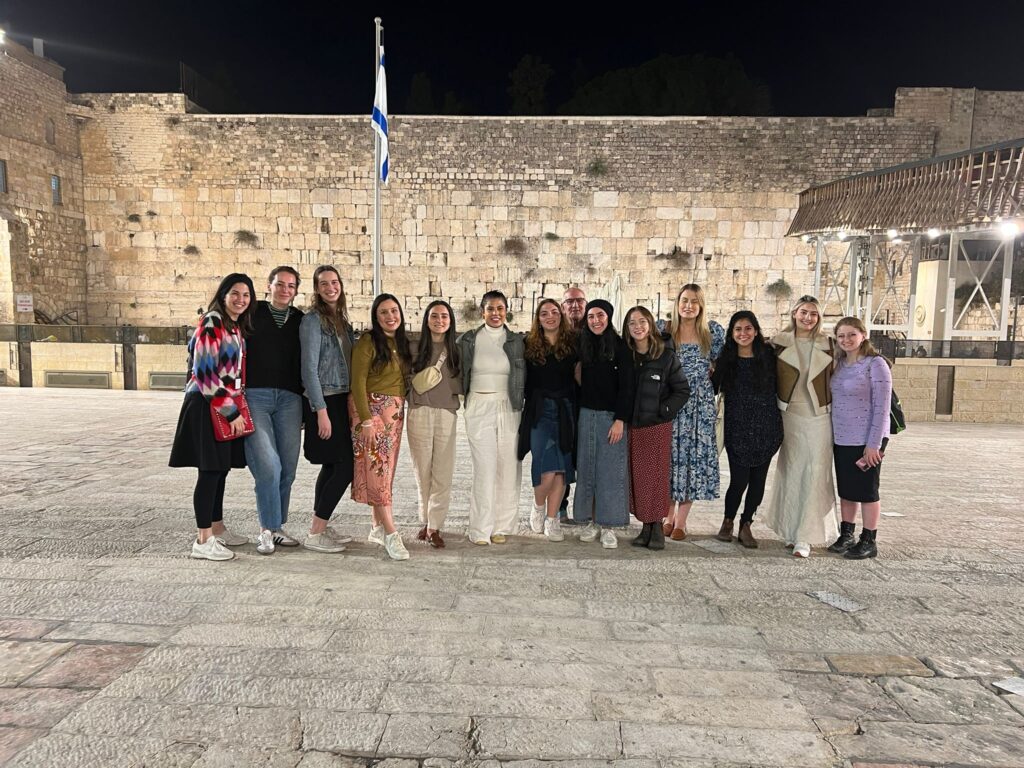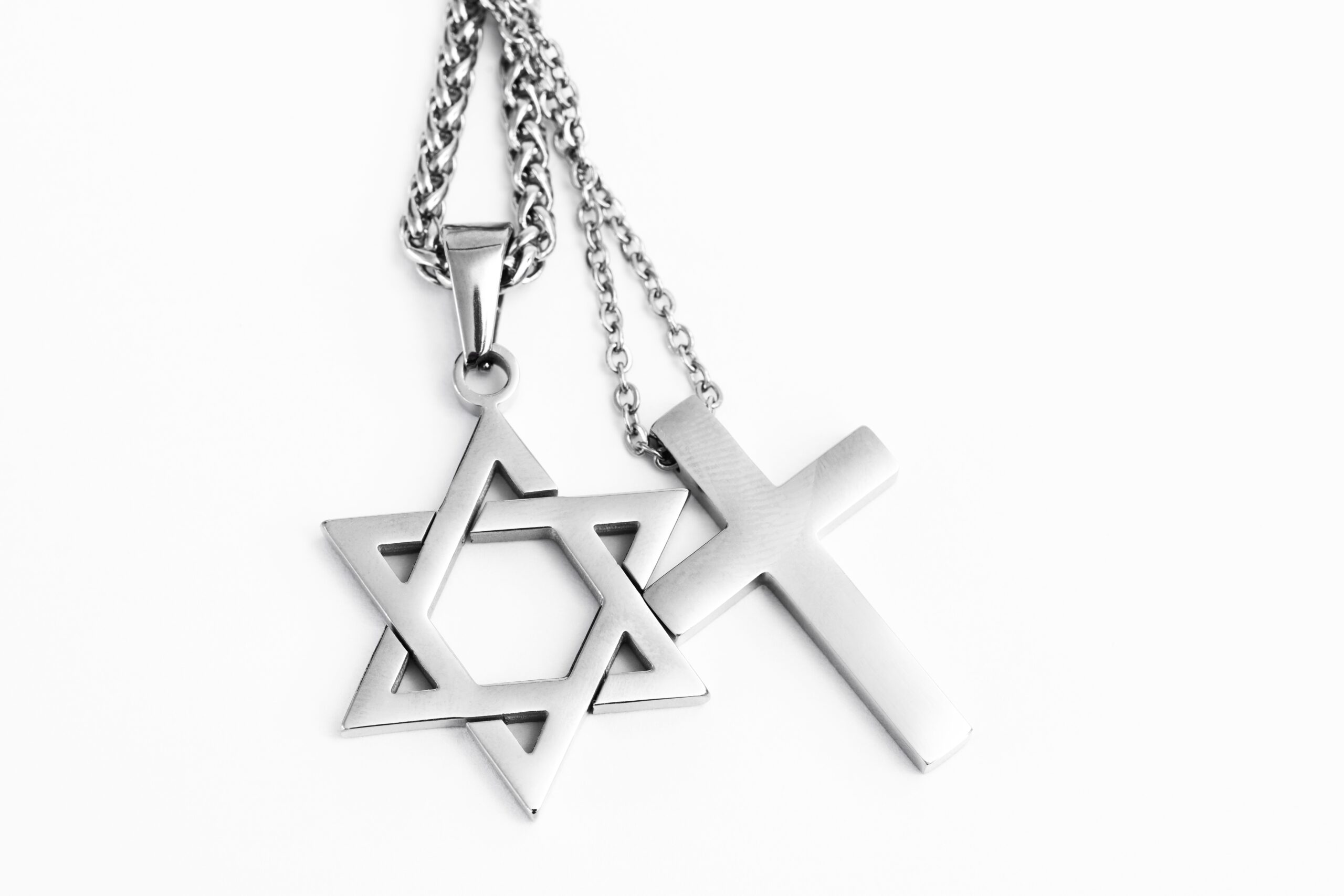Before I go any further (Read Part 1 HERE), I must clarify my stance that at this point in history, Judaism and Christianity are two very different faiths.
As a Gentile Christian, I believe with my entire being that the Jewish man, Jesus of Nazareth, IS God, the Son of God, the Messiah, fulfilled the Scriptures, died as the perfect and final sacrifice to open a relationship with God as never before, and is alive today.
And although my knowledge of Orthodox Judaism is minimal, I completely understand why they would not believe Jesus is the Messiah. There are many things Jesus did not accomplish (as a Christian, I would add “yet”) that the Bible prophesied the Messiah would. One glaringly obvious one is not establishing a physical, peaceful, global rule from Jerusalem.
I can’t argue this.
But here is the thing: I am not called to.
A Messiah does not need to be defended. A Messiah does not need to be argued. He either is, or He isn’t.
Just as the New Testament scripture states that Jesus is the “author and finisher of our faith,” meaning He started His work in me and He will finish it, I believe He started and will finish the work in Israel and the Jewish people. “Saving” Israel is not my responsibility; it is the Messiah’s. So I don’t need to debate, push, or be offended if someone disagrees.
With this, the pressure is off! I only have to be the self-sacrificial love I read about and claim I am being transformed into.
Now, “love” will undoubtedly end up having many definitions, and people will state that I am not “loving” for being open to a fulfillment of God’s redemptive plan that is bigger than my own understanding and predictions. (Some will call that “compromising Truth.”) So, I’d like to propose another word Jesus uses to describe His ministry: servanthood.
And servants don’t debate. Servants don’t push. Servants don’t get offended.
Servants… serve.
So, to serve someone I love, I must include one very important component in my actions: listening.
And this is what we Christians must do better with the Orthodox Jewish community.
At this point, I must interject that my ideas on how Christians should interact with and treat the Jewish community did not start with them. They began with my wife and our marriage. All husbands know that if we “love” our wives with the intention to change them or get something from them, that is not love; that is manipulation, and our wives can smell it from a mile away. This type of “pursuing” is more likely to end in divorce than further unity, much like it has with our relationship with the Jewish people.
So I humbly ask my Christian brothers and sisters, how much do we genuinely want to represent Jesus’ ministry of self-sacrificial love and servanthood?
Can we listen, “die to ourselves,” lay down every preconceived outcome, and give our love away with absolutely nothing to gain?
When it comes to the Jewish people, who are unlike any other people group in history, being God’s firstborn, the “natural branches,” chosen people, and the apple of His eye, can we take off our “evangelical” hats, wear the “pastoral,” and love and serve His people in a way that they can receive?
Instead of them wondering when we will try to convert or convince, can they trust us to comfort and care, as they are the continuous target of evil’s plans?
And to all readers, both Jews and Christians, I humbly ask, when will we stop letting evil define us and push us toward unity?
The war cry from many Jews to rally Christians to join the fight has been, “Hamas says they will first come for the Saturday people first, and the Sunday people second.”
I have had conversations in the same week with Jewish Orthodox men and Jewish men who trust Jesus (I am not Jewish, so it is not my place to determine someone’s identity), both of whom use the Holocaust to “prove” their Jewish identity, saying, “I am Jewish! My (so-and-so) survived the Holocaust.”
I have sat across the table from Holocaust survivors who are not observant and say, “Hitler defined me.”
And as we can see from recent events in America, Hamas supporters do not care much about our definitions either as to who they will murder to destroy Israel.
Isn’t it curious?
The two groups who claim to know the Living God, Creator of the Universe, slow to anger, full of grace and mercy, quick to forgive, and placing blessing on one thousand generations, are only united when death calls us to be?
I pray for a time when we are no longer identified and united by Israel’s attackers, but by the hope we both hold and the life we are called to produce and protect.
Israel365 sets the standard for this cause as its beginning was not reactionary to catastrophe, but from a longing to be a light, show friendship and mutual respect, and speak truth. They are courageous in seeking unity by building bridges to cross, not conveyor belts to push. They leave room for the God-given gift of free will, which can get messy.
Israel365 holds true to their beliefs as Orthodox Jews while showing the kindness, mercy, and grace that Adonai revealed to Moses.

It is apparent we are in unprecedented times, and unprecedented times call for unprecedented measures. My experiences with local Orthodox rabbis and Israeli ones like Israel365 communicate that the Jewish community is open to the healing and forgiveness of centuries of murder at the hands of the people who shared my faith. And they are not asking much to pursue this healing.
They are not asking us Christians to not “make disciples.” They are not asking us to not boldly believe what we believe. They are not even asking us to not mention the name of Jesus to them.
They are simply asking us to listen.
I believe we can.
Unity does not come from sameness, for that would be conformity. Unity comes when two very different things remain different, yet fit together perfectly, just like man and woman in marriage. Then, and only then, can the miracle of life be produced.
Could there be a unity between Jews and Christians that the world has never seen? Not by agreeing on everything, but by loving and serving, showing mercy and grace. Perhaps both groups can unite and magnify the “blessing unto all the nations” and the taste of being “salt of the earth.”
What if we focused on producing life instead of fighting death?
I believe it starts with us, Christians. The people of Israel have been around far longer than we. They have outlasted dispersion and genocide time and time again. Israel and her people are not going anywhere, and they are offering an avenue to healing. Can we love, serve, and listen in a way that brings the power, life, and unity we know to be true?
I believe we can.
“Behold, how good and how pleasant it is for brothers to dwell together in unity!” Psalm 133
Ryan Warren is the discipleship pastor at a church in North Texas and lives in the heart of the North Dallas eruv, where he continues to serve and support the local Jewish community.




